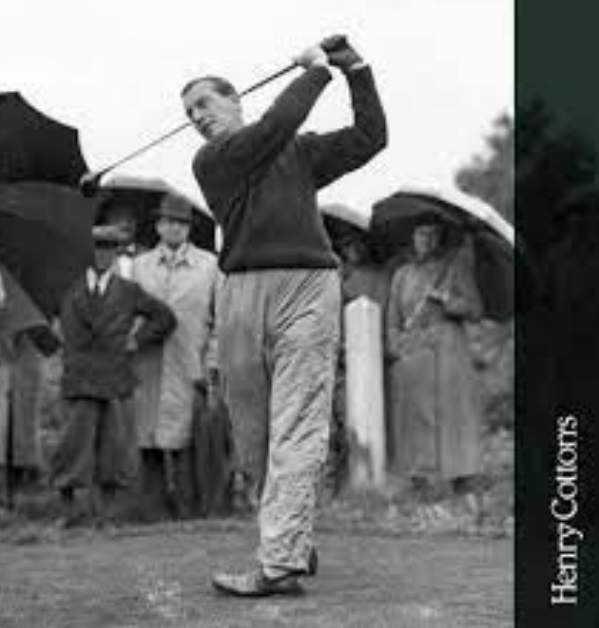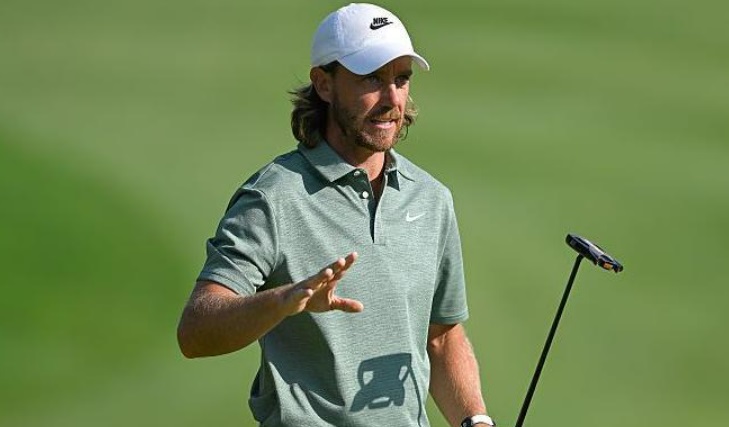Introduction: The Great English Golf Debate
Every sport has its pub debate. For football, it might be Rooney vs. Lineker; in cricket, Botham vs. Stokes. But what about golf? England’s golfing heritage is as rich as its football terraces, yet when someone asks, “Who is England’s best golfer?” — the answer isn’t quite as straightforward.
Do we judge greatness by trophies alone? Or by influence and inspiration? England has produced Open champions, Ryder Cup heroes, Olympic medalists, and even the man who invented the grip most of us still use today. The debate is as layered as a windswept links course on a stormy day.
Let’s take a journey through England’s golfing history to uncover the contenders, weigh their legacies, and ask: Who truly deserves the crown?
The Pioneers: Shaping English Golf’s Identity
Harry Vardon – The Architect of Modern Grip
It’s impossible to begin without Harry Vardon. Though from Jersey in the Channel Islands, Vardon’s impact defined English and European golf.
- Achievements: 6× Open Champion (still a record), U.S. Open Champion (1900).
- Legacy: Popularised the “Vardon Grip” — still the most widely used grip in the game today.
When you hold a golf club, you’re holding a piece of Vardon’s legacy. His calm, repeatable swing was decades ahead of its time. More than his trophies, Vardon gave golf a blueprint that still defines how the sport is played.
Sir Henry Cotton – The Showman of the 1930s

Fast forward to the interwar years, and England’s golfing hero was Sir Henry Cotton.
- Achievements: 3× Open Champion (1934, 1937, 1948).
- Impact: Turned golf into a glamorous sport in Britain, inspiring a generation to pick up clubs.
Cotton’s personality was as important as his golf. He was stylish, charismatic, and knew how to make headlines. At a time when football and cricket hogged the spotlight, Cotton brought golf into the newspapers and onto radio broadcasts.
The Faldo Era: England’s Greatest Champion
If England had a golfing king, it would be Sir Nick Faldo. His dominance in the 1980s and 90s is unmatched in English history.
- Achievements: 6× Major Champion (3 Masters, 3 Opens).
- World No.1: Held the top spot for 97 weeks.
- Ryder Cup: One of Europe’s most reliable performers, later captain in 2008.
Faldo wasn’t loved for his warmth — he was respected for his precision. His game was built on discipline, technical perfection, and mental toughness. Whether dismantling Greg Norman at Augusta in 1996 or outlasting Seve Ballesteros at Muirfield in 1987, Faldo thrived under pressure.
His six majors remain the gold standard for English golf. No Englishman has come close since.
The Modern Contenders: England’s New Golden Era
Golf didn’t stop at Faldo. In the 2000s and 2010s, England produced a string of world-class players.
Justin Rose – The Complete Modern Golfer
- Major: 2013 U.S. Open Champion.
- Olympic Gold: Rio 2016 (the first since golf returned to the Games).
- World No.1: Reached top ranking in 2018.
Rose is admired for his all-round game and calm under pressure. His Olympic triumph gave England a moment of sporting history that no trophy could replicate.
🖼 Image Suggestion: Justin Rose holding Olympic Gold medal in Rio, 2016.
Luke Donald – The Consistency Maestro
- Achievements: Former World No.1, Order of Merit winner.
- Strength: Short game wizard, unrivalled consistency in his peak.
Donald never won a major, which dents his claim, but his Ryder Cup record and leadership (including captaining Europe in 2023) have cemented his place as one of England’s most respected golfers.
Matt Fitzpatrick – The Rising Star
- Major: 2022 U.S. Open at Brookline, winning on the same course where he claimed the U.S. Amateur in 2013.
- Style: Combines modern analytics, power, and discipline.
Fitzpatrick may well carry England’s major hopes for the next decade. His scientific approach and clutch performances suggest he’s only getting started.
Tommy Fleetwood – The People’s Favourite

- Achievements: Multiple European Tour wins, Ryder Cup heroics (especially 2018 “Moliwood” partnership with Francesco Molinari).
- Legacy: Still chasing his first major, but loved for his personality, flowing hair, and clutch team performances.
Fleetwood embodies the emotional connection fans crave — even if he’s yet to match Faldo’s silverware.
Head-to-Head: The Numbers Game
| Golfer | Majors Won | Ryder Cup Wins | Weeks as World No.1 | Career Highlight | Legacy Impact |
|---|---|---|---|---|---|
| Harry Vardon | 7 (6 Open, 1 US) | Pre-RC era | N/A | Invented Vardon Grip | Technique & foundation |
| Henry Cotton | 3 (Open) | Pre-RC era | N/A | Brought glamour to golf | Populariser |
| Nick Faldo | 6 (3 Open, 3 Masters) | 5 Ryder Cups | 97 weeks | 1996 Masters comeback | Greatest English champion |
| Justin Rose | 1 (US Open) | 3 Ryder Cups | 13 weeks | Olympic Gold 2016 | Modern hero |
| Luke Donald | 0 | 4 Ryder Cups | 56 weeks | World No.1 (2011–2012) | Consistency & leadership |
| Matt Fitzpatrick | 1 (US Open) | 1 Ryder Cup | Top 10 | 2022 US Open at Brookline | Rising star |
| Tommy Fleetwood | 0 | 2 Ryder Cups | Top 10 | Ryder Cup 2018 “Moliwood” | Fan favourite |
Beyond Stats: What Makes a Golfer “The Best”?
The stats favour Faldo. Six majors and nearly two years as World No.1 make him untouchable in pure numbers.
But English golf is about more than silverware.
- Vardon shaped the game technically.
- Cotton made golf glamorous in Britain.
- Rose gave England an Olympic golden moment.
- Fleetwood embodies passion and fan connection.
Greatness isn’t just what’s on paper — it’s also what people feel.
Conclusion: So, Who is England’s Best?
If the question is purely factual, the answer is simple: Sir Nick Faldo. No English golfer has ever dominated majors and world rankings like him.
But if we broaden “best” to include cultural impact, inspiration, and legacy, then it’s a richer story. From Vardon’s grip to Cotton’s charisma, Rose’s Olympic glory, and Fitzpatrick’s promise, England’s golfing history is a tapestry, not a single thread.
Perhaps the best way to answer is this: England’s greatest golfer is a debate, not a conclusion. And that, in itself, is what keeps the game alive — from windswept links in St George’s to Augusta’s blooming azaleas.
Read more like this: The History of UK Golf I BBC Golf: More Than Just Highlights
